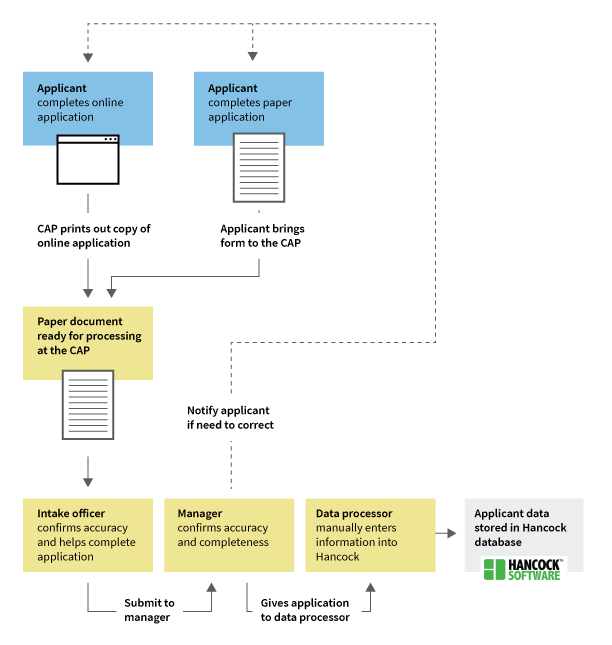How can we expand the reach of the Low Income Home Energy Assistance Program in Rhode Island?
Project Summary
The Low Income Home Energy Assistance Program (LIHEAP) is a national program to help low-income families, particularly those with the lowest incomes maintain access to heating and cooling in their homes. The program is overseen by Rhode Island's Department of Human Services (DHS) in partnership with Community Action Program agencies (CAPs) across the state. The Policy Lab and the United States Digital Service completed a month of interviews and process mapping in order to help DHS and the CAPs improve the delivery of LIHEAP services.
Why is this issue important?
A warm home in the winter is essential, but this is far from guaranteed for thousands of financially-struggling Americans. The Low Income Home Energy Assistance Program (LIHEAP) is a national program to help low-income families, particularly those with the lowest incomes (within 150% of the Federal Poverty Level), maintain access to heating and cooling in their homes. The program is overseen by Rhode Island’s Department of Human Services (DHS) in partnership with Community Action Program agencies (CAPs) across the state. In federal FY 2019, LIHEAP served approximately 30,000 (7%) of households in Rhode Island.
In September 2020, a team from the United States Digital Service (USDS) and The Policy Lab completed a month of interviews and process mapping in order to:
- Develop an understanding of how LIHEAP operates in Rhode Island;
- Build relationships with the people and organizations that make LIHEAP work; and
- Create a report that can serve as a roadmap for future LIHEAP research and improvements.
What did we do?
We conducted more than 25 total interviews with LIHEAP clients, DHS administrators, employees at all seven Community Action Program agencies (CAPs) who administer LIHEAP grants, software vendor Fulcimus, National Grid, and the George Wiley Center. Due to the coronavirus (COVID-19) pandemic, most of these interviews were conducted remotely over teleconferencing software, though two team members also conducted a set of on-site interviews with DHS, three CAPs, and LIHEAP clients to see the process firsthand.
What did we learn?

The research findings demonstrated that the LIHEAP program in Rhode Island serves clients well, provides vital assistance, and is managed effectively by DHS, with dedicated effort from the CAPs. Our full report shares detailed findings and recommendations, including opportunities to:
- Increase client access through outreach and a simplified application process.
- Reduce administrative burden through staffing and an online intake process.
- Proactively address service gaps by further focusing on proactive policies to address crises before they occur.
As a sample of report findings, the figure to the left shows several places where time spent on burdensome administrative tasks can be reduced with technology.
What happens next?
These recommendations are under consideration for implementation in Rhode Island. The learnings here are also very likely to be applicable to other states, and so we hope that this report sparks further work to improve LIHEAP delivery across the country.
How to cite this Project: The Policy Lab. (2021, February 24). How can we expand the reach of the Low Income Home Energy Assistance Program in Rhode Island?. The Policy Lab. https://thepolicylab.brown.edu/projects/liheap

